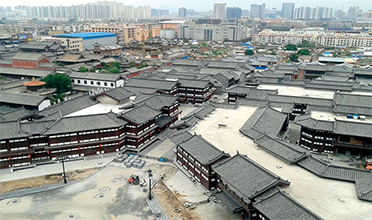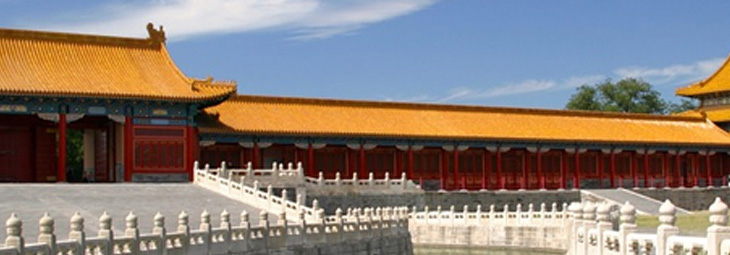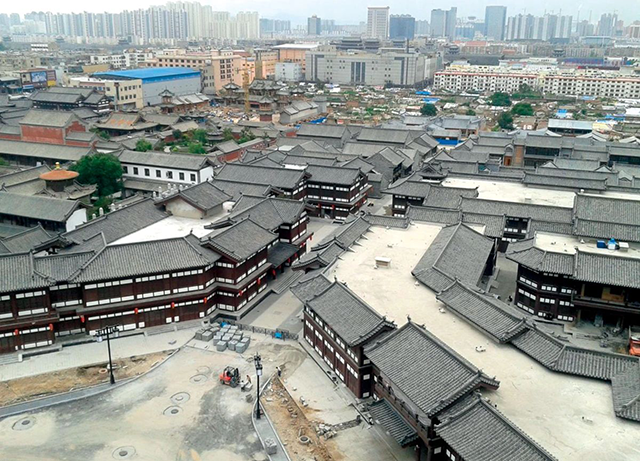



Ju Dedong
Secretary General of Academic Committee of Historical and Cultural City Planning of Urban Planning Society of China
President of the Research Branch for the Protection and Development of Historical and Cultural Cities of the China Academy of Urban Planning Design
What are the core issues currently faced by the conservation of historical and cultural heritage in urban and rural areas? How to solve ?
Ju Dedong: Currently, the core task faced by the conservation of urban and rural historical and cultural heritage is how to comprehensively build a system for the conservation and inheritance of urban and rural historical and cultural heritage, promote the integration among the conservation,utilization and inheritance as well as establish a full life cycle protection and management mechanism according to the protection of the entire area and all elements.
There are some specific problems in our work. Firstly, it is common to see the large-scale demolition and construction of various historical and cultural heritages and buildings, as well as the phenomenon of valuing ancient times over modern times, indicating the bias in understanding values. Secondly, some historical blocks develop tourism solely, and so a large number of residents are relocated to create scenic spots, resulting in losing the fireworks and many deserted streets. Some historical blocks and buildings have not been meticulously renovated and designed, resulting in a lack of historicity, liveliness, and diversity after implementation. Some historical blocks mechanically pursue the style coordination and extensively imitate and restore the past, which undermines authenticity. Thirdly, due to the limited financial investment from local governments, it's difficult to attract support from market entities for the protection and inheritance work. Many old streets and buildings continue to decline due to long-term lack of financial support. Thus, it is a major challenge to update those various mechanisms and policies. These problems have existed for many years. Therefore to systematically solve these problems, it is necessary to focus on the following work:
1. The research of value characteristics, as the foundation for protection work, is the bottom line to solve whether protection is necessary and why protection is necessary. Only by forming the correct value judgments and reaching a consensus on value cognition can we ensure the correct direction of historical protection and urban renewal work. Value research needs to be based on a comprehensive consideration in historical, systematic, holistic, and environmental perspectives.
2. It is necessary to spatially avoid the thinking of restrict our activities to a designated area, and to oppose protection and development. Architecture, location, and city should be examined from the perspective of the macro environmental. It is necessary to temporally avoid falling into a single binary opposition of respecting the ancient"or advocating the new. Moreover, it is important to socially address who is protected and who is updated, maintain social networks, and adhere to the principle of keeping local people , things and lifestyle with nostalgia.
3. People orientation is an important issue. The city is faced a more complex environment and a more specific population. So the work should be immediately effective. The concept and methods of people orientation need to be given more full attention, and it should be more methodical, and effective for jointly creation and public participation with more warmth.
4. It is important to integrate the maintenance and utilization of heritage. The first is to explore the protection and renewal technology of historical urban areas. The texture of the historical urban area and the living atmosphere of the ancient city are the most representative of a city's fireworks , which needs to be maintained. The second is to explore suitable functional renewal methods for historical and cultural blocks, which should be combined with the current conditions of the block location, resource characteristics to gradually promote the improvement of its environment and functional optimization, so as to continuing the vitality of the block. The third is to explore repair technologies, suitable for different historical buildings, implant appropriate usage functions, and promote functional activation ,combing with the needs of modern life,
5. Promote publicity is another important issue. A correct consensus can avoid all kinds of mistakes in protection, and good cases can provide reference and inspiration for protection practice. In previous years, the Professional Committee for the Preservation and Inheritance of History and Culture of Scientific and Technical Committee of the Ministry of Housing and Urban-Rural Development organized the national collection and selection for the illustration cases for the protection and inheritance of history and culture , and compiled these cases into a book, which are important for guiding the right direction in the future conservation heritage.
6. Policy support is necessary. Firstly, it is important to increase the central and provincial funding for the central and western regions and less-developed regions. Secondly, for conditional areas, protection funds should be incorporated into the budget, because the continuous improvement for the blocks, historic buildings need long-term financial support. For example, Suzhou, Yangzhou, Shaoxing and other places have long been committed to protecting the ancient city. The continuous improvement of people’s livelihood in ancient city has also become a tourist hot spot, objectively further promoting the development of the city. Thirdly, we should strongly support and encourage social funds to participate in the protection of historical and cultural towns, villages and blocks with prominent resource and location advantages.

▲ An antique block lacking in popularity
Source: <https://www.planning.org.cn/news/view?id=14244&cid=0>
Translated by Wang Yue